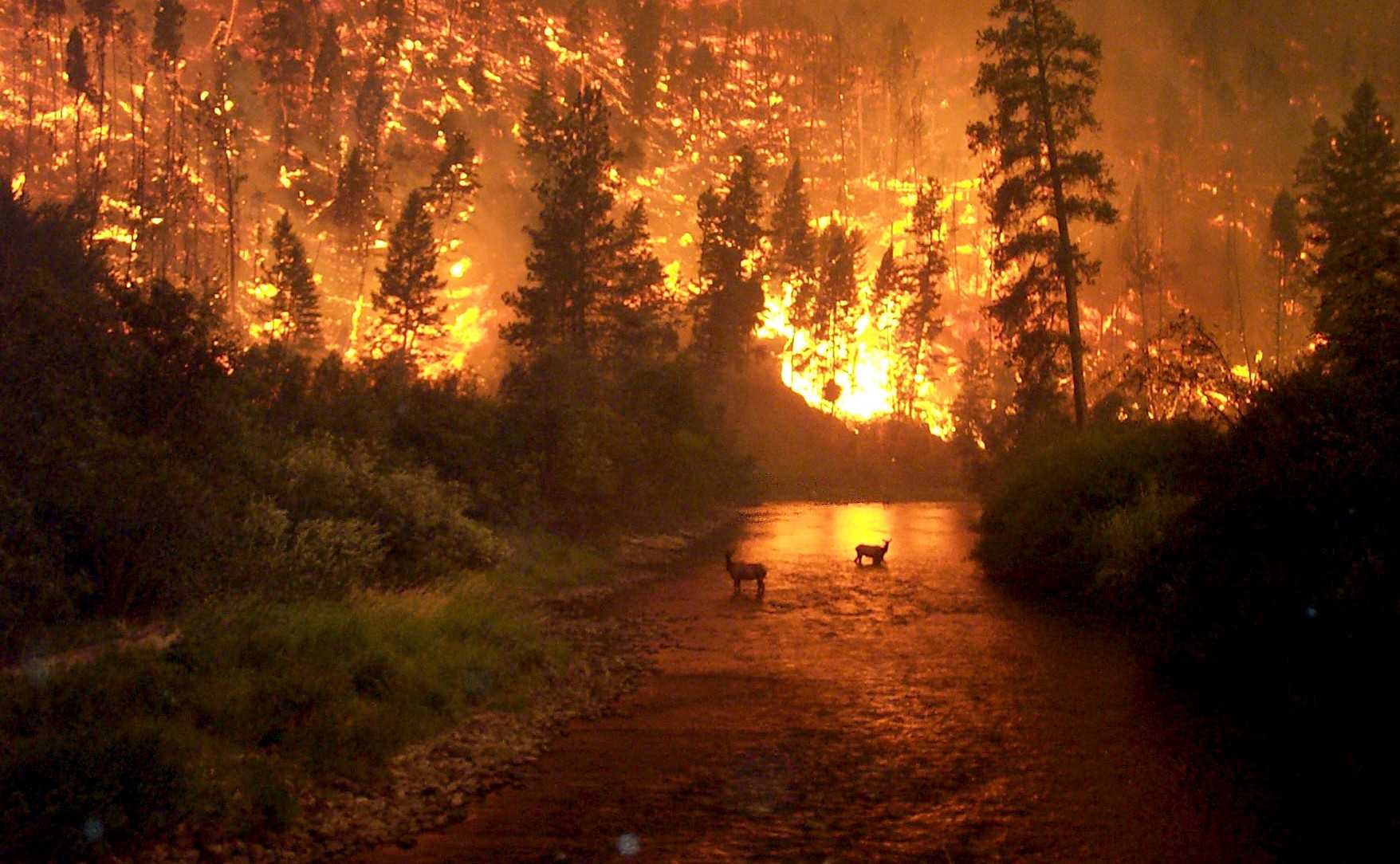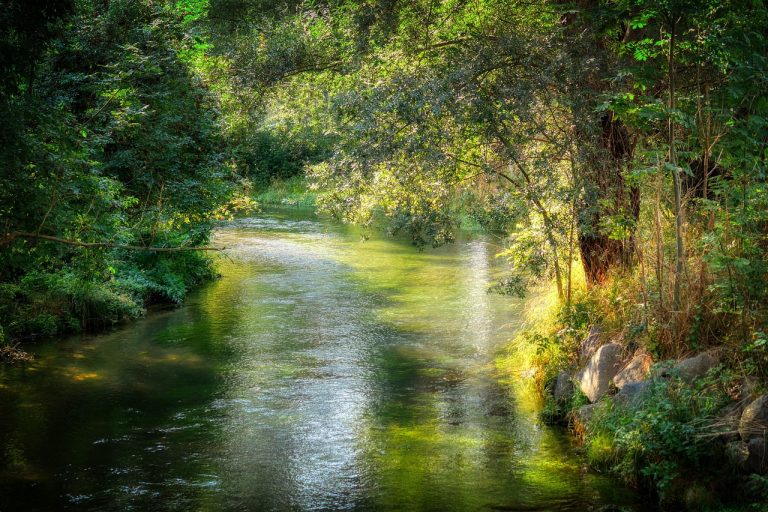Imagine standing in a forest where the wind suddenly shifts. Flames that were distant just minutes ago now roar toward you. Trees explode in heat. The air turns orange, thick with smoke and ash. There’s no road out. No car. No clear direction.
What would you do?
Every year, thousands face this nightmare. Some survive by sheer luck. Others don’t. But the harshest truth is this: many of those lives could have been saved—not by courage, but by more time.
This post explores what to do when you’re surrounded by wildfire—and how exci’s AI bushfire (wildfire) detection technology could mean the difference between life and death.
Trapped by Bushfire
What to do when there’s nowhere to run
We’re told to evacuate early, and that’s always the best advice. But fires are unpredictable. Winds shift. Roads close. Sometimes, you’re surrounded before you even realise the danger.
When that happens, knowing precisely what to do—without hesitation—is your best chance.
So what can you do when the fire closes in?
Essential Survival Strategies
1. Seek Water Immediately
- If you’re near a lake, pond, stream, or even a swimming pool, get in.
- Submerge yourself as much as possible, keeping only your face above the surface to breathe.
- Cover your mouth and nose with a wet cloth to filter smoke and ash.
- If the fire passes overhead, stay low and submerged—even if the heat is intense, water can shield you from deadly temperatures.
River by fietzfotos via pixabay
2. Dig In and Cover Up
If no water is available:
- Dig a shallow hole in mineral soil (bare dirt, not roots or grass).
- Lie flat inside.
- Cover yourself with a fire shelter if you have one.
- If not, use a heavy coat, wool blanket, or any flame-resistant material.
- Avoid synthetic fabrics—they can melt onto your skin.
- Even a few inches below the surface, the earth stays much cooler, protecting you from radiant heat.
Mole digging a hole by Beeki via pixabay
3. Use Burned Ground to Your Advantage
Move into already burned areas, even if they are still hot. Fires rarely re-burn ground that has already been consumed.
It might feel dangerous, but it’s often safer than trying to outrun an advancing fire.
 Burned vegetation. Source: flickr
Burned vegetation. Source: flickr
4. The Grassfire Gamble
Grassfires move fast, but they burn quickly, too.
If you’re trapped and see a narrow, advancing flame front in grass:
- Move to the far side—away from the fire’s direction.
- Cover yourself completely with protective gear if available.
- Wait until the fire front is very close, then run through it quickly, holding your breath if possible.
- Move to cooler, burned ground immediately afterwards.
⚠️ This is a desperate, last-resort tactic. You may suffer burns, but it can offer a narrow chance of survival.
Grass field fire. Source: Pexels Alexandre junior via pexels
Keep These Ground Rules in Mind
- Don’t run blindly. Fires often move faster than people, especially uphill or in strong winds.
- Move parallel to the fire line if you must, seeking natural breaks like roads, rivers, or rocky ground.
- Walk into the wind—unless it leads you toward the flames.
- Move downslope if the fire is above you; uphill only if the fire is below.
- Stay calm. Panic clouds your judgment and leads to mistakes.
Extra Critical Survival Tips
- Always watch for signs of smoke, a red glow, or the smell of burning — these are early warning signs that matter.
- Call emergency services immediately if you see a fire. Never assume it’s under control.
- Avoid canyons, narrow passes, and valleys; these can funnel heat toward you.
- Steer clear of areas thick with dry vegetation.
- Never outrun a wildfire — move smartly, not quickly.
- If you find a safe zone, stay put and protect yourself rather than panicking.
- Keep your clothes dry to prevent steam burns.
- Protect your breathing! Most wildfire deaths are caused by smoke and toxic gases, not flames.
- Stay clear of overhead branches that could fall and ignite.
🔥 Understanding Fire Behaviour Can Save Your Life
Fires don’t move randomly—they follow patterns shaped by wind, slope, and fuel:
- Wind pushes flames faster and farther. Fires can spread rapidly when driven by strong winds.
- Slope speeds up fires moving uphill. Flames preheat vegetation above them, causing fire to race uphill with terrifying speed.
- Fuel — dry grasses, shrubs, and trees — determines how hot and fast the fire burns. Dense fuel means more intense, longer-burning fires.
Recognising these patterns can help you make faster, smarter decisions under pressure. It’s also why real-time fire tracking — like that enabled by exci’s AI technology —is so crucial for safe, timely evacuations.
The Hard Reality: Sometimes, There’s No Escape
In some wildfires, survival tactics may not be enough. Wind-driven fires can overwhelm even the most experienced firefighters.
As one veteran firefighter said:
“The only sure way to survive a wildfire is never to get caught in one in the first place.”
That’s why time—more than bravery, more than skill—is the most precious resource when a fire breaks out.
exci Buys You Time in a Bushfire
Every survival tactic above is a last resort. You should never have to dig a hole, run through flames, or lie submerged in a lake while fire roars overhead.
exci’s AI-assisted early bushfire (wildfire) detection system exists to ensure you don’t.
- Real-time image analysis from strategically placed high-resolution cameras.
- Instant alerts for rapid emergency response.
- Fires are detected within minutes, not hours, giving responders and communities critical time to act.
- Satellite integration for monitoring and tracking bushfires even in remote regions.
- Real-time visibility into fire movement enables emergency teams to guide people to safety and adjust evacuation plans as conditions change.
exci is proudly Australian-made and owned, offering sovereign control, local responsiveness, and reduced risk from foreign political and pricing uncertainties.
When seconds can mean the difference between survival and tragedy, exci gives you those precious seconds back.
 exci’s AI-wildfire detection technology
exci’s AI-wildfire detection technology
In Closing: Don’t Wait for the Flames to Teach You
Wildfires are fast, brutal, and unforgiving. Knowing how to survive a wildfire is crucial, but relying on last-ditch survival tactics should be a rare occurrence.
Early warning, preparation, and swift action are the true keys to surviving—and thriving—in fire-prone landscapes.
exci’s AI-driven bushfire detection technology gives you the time you need—before fire takes away your choices.
Because in a bushfire—or wildfire—seconds aren’t just seconds.
They are lives.
Key Takeaways at a Glance
🔥 Evacuate early whenever possible — don’t wait for danger to get close.
🌊 Seek water, dig into soil, or move to burned ground if trapped.
🧠 Stay calm, move smartly, and avoid running blindly.
🛰️ Recognise fire behaviour patterns — wind, slope, and fuel shape fire movement.
🚨 Call for help immediately if you spot signs of wildfire.
🛡️ Trust early detection — exci’s AI technology detects fires within minutes, giving you critical time to act and escape safely.
✅ Bonus Resource:
Printable “Trapped in a Wildfire Survival Guide” (link to PDF download)
by Gabrielle Tylor
exci – The Smoke Alarm for the Bush
AI Bushfire & Wildfire Detection Technology
30 April 2025



 Burned vegetation. Source: flickr
Burned vegetation. Source: flickr
